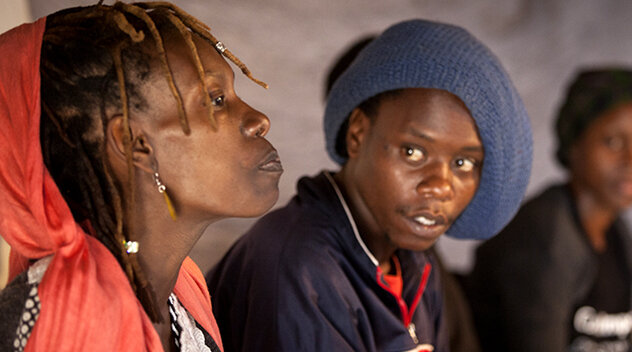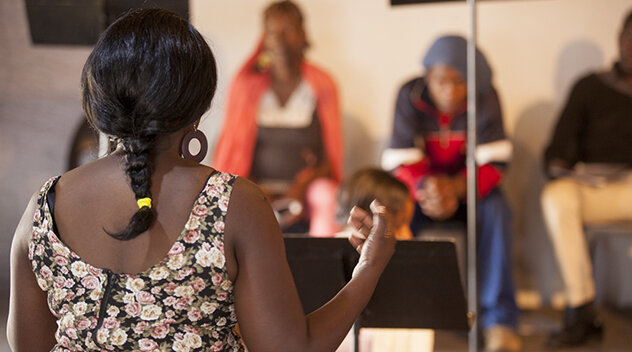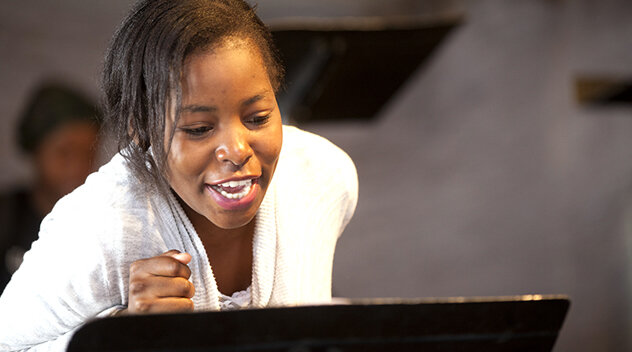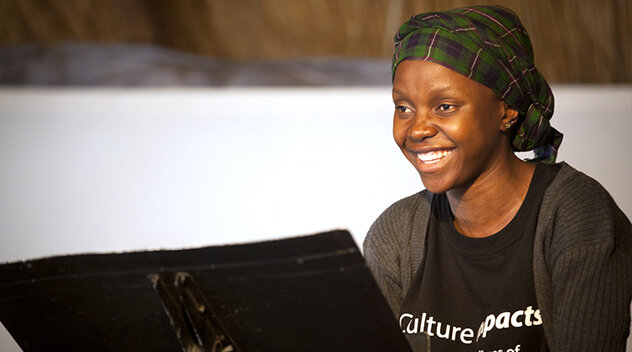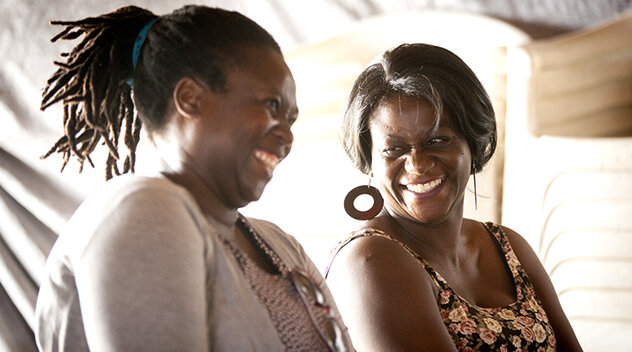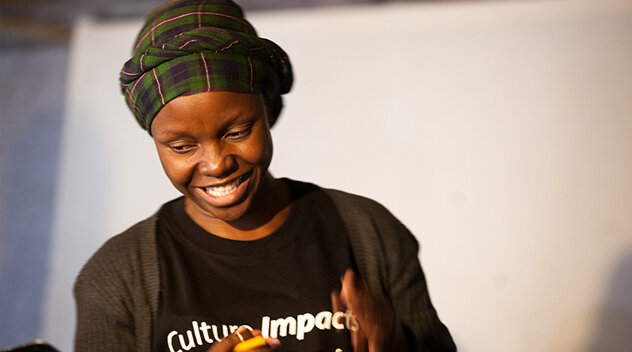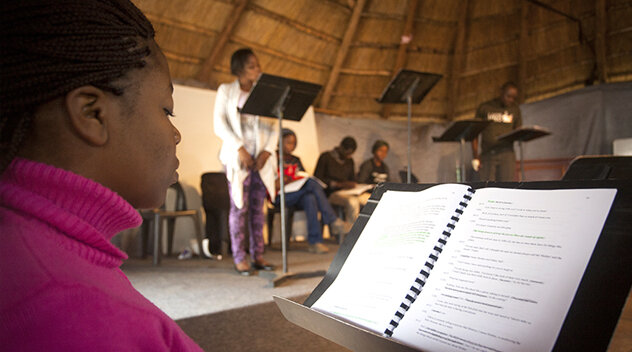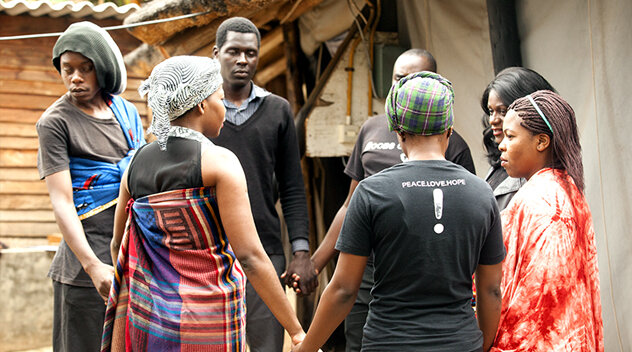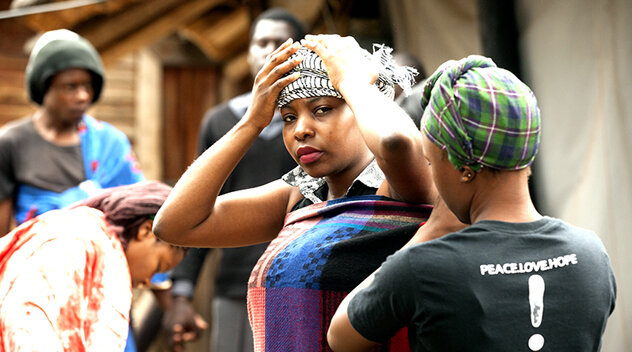Directing Ama Ata Aidoo’s Anowa
Harare, January 19th 2017 | Sandra Chidawanyika-Goliath
“Ama would have loved this interpretation of her play”, remarked a happy member of the audience during the post-performance discussion, after revealing that she was Ghanaian and a personal friend of the Ghanaian playwright Ama Ata Aidoo.
It was Ama Ata Aidoo’s unique writing style and use of historical facts and African proverbs, to turn an ordinary folktale into a story with a strong message, which attracted me to this play. So vivid was the imagery, I sensed that this writer is passionate about her work and wants to make sure no detail is rearranged or deemed unimportant or missed in delivery.
This beautifully written play set in Ghana 1874, “thirty years after the bond of 1844” is about Anowa, a strong-willed and free-spirited girl who is expected to marry at puberty. For six years she turns all her suitors away until she falls for Kofi Ako; a ‘watery man of all watery men,’ as referred to by Anowa’s mother who knows about his reputation of indolence. In defiance to her mother Abena Badua’s counsel, she walks out on her and her father, Papa Osam to start a new life with Kofi Ako, vowing never to return. Anowa and Kofi Ako enter into the trade business, led by Anowa, and become very successful, but after a few years of marriage, Anowa realizes that her husband is a devil in disguise. A series of events lead to a mentally unstable Anowa, and a tragic end for both.
Anowa represents the modern woman who likes to make her own decisions and live life as she chooses. Though a tribal woman, she has the traits of a city-bred one. Ama Ata Aidoo uses an old couple, known in the play as THE-MOUTH-THAT-EATS-SALT-AND-PEPPER, to present crucial points in the play and give their own views on the events in the play. These two argue and ask that in spite of the world becoming a global village, is it acceptable to just throw our customs and traditions out of the window without costly repercussions? The play forces us to think about universal issues such as gender roles, effects of colonization, childbearing in our different societies and consequences of the lack thereof, and more importantly, the choices we make and how they affect others.
After a not-so-easy task of selecting actors, I set out on my journey as a director to implement a unified vision and humbly lead the experienced team toward its ultimate actualization.
My vision as a director was to identify Ama Ata Aidoo’s voice in the play, in all its rich text and mysterious proverbs, break the text down piece by piece until it was easy for us to take in, add layers to give it our truth as men and women who have been forced to conform to society’s ways in one way or another during our lifetime. We would then use these truths to bring the script to life, making it relatable to our audience.
To implement this effectively, I invited each actor to set and share personal objectives for the week, so that where possible, I could align them to my objectives and thus serve the writer’s intentions as I had interpreted them.
From the first table read, I guided the team in the discovery of the play’s structure and meanings, and in seeking to understand each character and the demands placed upon the actors. This highly creative intercourse contributed to a clearer understanding of the writer’s influences and vision. During this process, I was wary of how this collaboration and my disinclination to impose in the first discussions should not come at the expense of the playwright’s voice and intentions, as it may tend to stifle or change it.
Another result of encouraging the team to own the process was the challenge by one actor through his objective to see if he could use his skills in a physical theater to aid in delivery. With this in mind, we paid special attention to ensuring that the actors understand that in a staged play reading we should not forget the ‘performance’ aspect. Unlike a radio drama, where the listener cannot see the readers, a staged reading demands that we engage as many of the audience’s senses as we could in order not to lose them. Once the team understood the structure and language, as well as the mood and atmosphere of each scene, they were aware to ‘listen actively’ as their characters, understand what was being said and how it affected their character and reacted accordingly. Not a day passed during our rehearsal week when we did not make new discoveries about each character, their relationships with others in the play, and the ways of the people of Ghana during the 1800s.
As most of the actors played two different characters of different ages, we focused largely on the use of voice, posture and minimal movement to show the difference in each character. We also worked on pace and a variation of tempo to ensure that we did not lose the audience as some of the scenes were really long.
By the end of the week, I was confident that we had understood Ama Ata Aidoo’s intentions in this piece and would be able to give life to the text. Did we do enough to push forward the writer’s vision in penning this folktale? Will Anowa one day be mentioned among change-makers in African history? Or will she and others like her continue to be used in tales told in the future of rebels who deserve to be silenced? I do not have the answers, but I do not take for granted this opportunity given to me by Almasi Collaborative Arts to direct this accomplished play.
I would not be doing justice to a living legend if I did not salute the writer’s long-time role as professor, advocate and passionate activist defending women’s rights, which left her vulnerable to damaging censorship and regulation especially in the 1970’s. There is something special about studying the works of a writer as passionate and consistent as Ama Ata Aidoo, but even more special is knowing that you are not alone if as a woman, or a man, you choose defiance rather than to conform, as Dr. Martin Luther King, Jr once said “A man can’t ride your back unless it’s bent”.

